On July 6th, the Office for Science and Technology of the Embassy of France in the United States will host the Blue Talks Ocean Conference, co-organized with the Permanent Representations of France and Costa Rica to the Organization of American States (OAS).
This conference will be the opportunity for you to exchange with a large panel of international experts from the US, Latin America and Europe, on the latest status of scientific knowledge for Ocean sustainability action.
The event will take place on July 6th from 2:30 pm to 6:30 pm at the Embassy of France, 4101 Reservoir Road NW, Washington, DC 20007, and will be followed by a cocktail reception.
The conference will open with welcoming remarks from Ambassadors Jean Marie Bruno (France) and Alejandra Solano Cabalceta (Costa Rica), followed by a few words from Gina Guillén Grillo, Foreign policy director at the Ministry of Foreign Affairs (Costa Rica), and Ashok Adicéam, Head of global affairs at the UN Ocean Conference 2025 (France).
The first panel will highlight the status of scientific knowledge on a few key ocean issues : biodiversity, plastic pollution, sargassum proliferation. The state of the art of satellite-based monitoring of ocean health will be introduced.
The second panel, organized as a roundtable, will be moderate by Kim Osborne, Executive Secretary for Integral Development at the OAS. Speakers will focus their speeches on the solutions for sustainable ocean action, with examples of solutions like Marine Protected Areas, public-private partnerships, or multilateral intervention.
For details on the speakers and talk contents, see below.
RSVP for the conference using this link: Blue talks: Ocean Conference Tickets, Thu, Jul 6, 2023 at 2:30 PM | Eventbrite
Panel 1 : Climate change and its economic impacts for coastal countries
Pascale Chabanet: Impacts of climate change on coral reefs and consequences on the economies of coastal countries

Pascale Chabanet is research director at the French Institute of Research for sustainable development (IRD). Doctor in marine ecology, her research focuses on the impacts of disturbances on coral habitat and fish populations in the Indo-pacific.
Her career took place between Ile de la Reunion, where she was a lecturer at the University of La Réunion between 1996 and 2003, New Caledonia, as research fellow at the IRD between 2003 to 2007 and back to Reunion since 2008. In 2005, she obtained her accreditation to supervise research (HDR), having presented her work on the impact of coral reef perturbations on reef fishes in the SW Indian Ocean.
She authored more than 100 scientific articles in peer-reviewed journals and her current research mostly focuses on the management of coral reefs. She has been committed throughout her scientific career to training students and to transferring knowledge to managers, NGOs, schools and the general public.
Abstract: Coral reefs, the earth’s most diverse marine ecosystem, provide numerous biological, ecological, cultural and economic benefits in tropical countries. Unfortunately, one-third of reef-building corals face extinction, due to human-induced impacts and climate change.
The latter generates rising sea temperatures, and thus more frequent bleaching events inducing massive coral mortality. Ocean acidification disrupts coral reef growth and calcification while extreme weather events physically damage reefs and increase vulnerability to coastal erosion. These impacts reduce biodiversity within coral reef ecosystems, leading to significant challenges for island nations and coastal countries and their associated economies.
Local communities suffer from negative repercussions on fisheries and tourism, while the vulnerability of shorelines and infrastructure compromises human security. To mitigate the economic consequences of climate change on coastal economies, conservation, international cooperation, sustainable development strategies, and education emerge as crucial approaches.
Karla Pozo Gallardo: Plastic Pollution and the Interaction of River-Ocean in Central Chile

Karla Pozo is Associate Professor at Faculty of Engineering, Architecture and Design at Universidad San Sebastian in Concepción Chile. She is also associate researcher at RECETOX, Masaryk University in the city of Brno Czech Republic. Karla Pozo has over twenty years of working experience in the field of Persistent Organic Pollutants (POPs). In the last ten years she has studied the nearshore bays behaviors in central Chile and the impacts of plastic pollution in biotic and abiotic compartments.
Karla Pozo is co-author of over 100 peer-reviewed publications; she actively collaborates with leading national and international Institutions.
She moved from Chile in 2000 to Italy where she completed her PhD studies at university of Siena (UNISI). In 2004, she got a postdoctoral position at Air quality branch, Environment Canada in the city of Toronto, Canada. From 2007 to 2012 she conducted research and academic activities at the department of environmental science at University of Siena (UNISI) in Siena Italy. In 2012 she started a position at RECETOX, Masaryk University where is currently associated senior researcher.
She has strongly contributed to studies on long-range transport of chemicals and investigated their presence, distribution, and fate along latitudinal and altitudinal north-south transects in different continents. In the last ten years, she has been investigating the burden of chemicals, including POPs, emergent contaminant, and additives in plastics. Marine litter characterization and loading of chemicals from coastal areas along the Chilean coast.
Abstract: Plastic pollution has become a planetary crisis and an emerging environmental risk due to its exponential production. It reached ͠ 370 million tonnes globally in 2020, containing chemicals such as basic polymers, additives – plasticizers, and other non-biodegradable components. It has been estimated that a further 109 Mt of plastics has accumulated in rivers and ended up in terrestrial or aquatic environments, especially in poorer countries.
Freshwater ecosystems account for some of the richest biodiversity in the world, and rivers are a vital, vibrant ecosystem for many species and provide water resources. However, freshwater biodiversity is under significant threat, with declines of 90% in vertebrate populations. The interaction between the river-ocean provides an ideal scenario to assess some of the impacts of plastic pollution. River discharge constitutes the primary source for the oceans. Nevertheless, there is a poor understanding of the land-ocean interaction related to the delivery of microplastics and their impacts. In the last eight years, we have studied the nearshore Bays in Central Chile and determined the presence of microplastics (MICPs) in several environmental matrices, including coastal waters, rivers, sand, air, sediments, and organisms (including marine food web).
Recently, we estimated a four times increase in the amount of MICP exported from the Biobio River to coastal zones in Central Chile (Pacific Ocean) on seasonal bases (mainly during winter). These findings suggest there is a strong influence on seasonality. Therefore, rivers could act as (long-term) sinks for plastic pollution. This investigation provides suggestions for future research directions.
Ligia Collado-Vides: Sargassum bloom, a regional symptom of a global oceanic problem

Dr. Ligia Collado-Vides is a marine botanist working at Florida International University (FIU), and Associate Chair of the Department of Biology. Her research is on tropical marine macroalgae on seagrass and reef ecosystems in South Florida and the Caribbean. Among other projects, her group is conducting a monitoring program estimating the influx and measuring metals and nutrients on the pelagic Sargassum in Florida. Her group has developed a Citizen Science program for Sargassum landings in South Florida and the Caribbean. She is the founder and coordinator of the international discussion list-serve for Sargassum SagNet that brings together experts, managers, policy makers and the public at large.
Dr. Collado-Vides has more than 57 publications in scientific peer-review journals and several book chapters and non-peer review journals. She is a member of the Association of Marine Laboratories of the Caribbean, the Latin-American and Caribbean Association of Phycology, and member of the American and the International Phycological Societies.
She devotes strong efforts to improve scientific and environmental literacy through national and international education. She has graduated 4 PhD students and supports research for undergraduate students through her active projects in her lab the Marine Macroalgae Research Lab at FIU. She teaches Marine Reserves, Phycology, Marine Botany among other courses.
Abstract: The regional size of the Sargasso bloom is a symptom of major planetary interconnected environmental impacts. A series of climate/oceanographic anomalies and historical accumulation of nutrient discharges to the ocean, are potential triggers that created a perfect storm resulting in the establishment of a new ecosystem named the Great Sargassum Belt (GSB) in the Equatorial Atlantic.
The Sargasso Sea has existed in the north Atlantic for more than 500 years serving as an important ecosystem that supports large fisheries and migratory species; however, since 2011 the recently established SGB is growing massive blooms of two pelagic species of the genus Sargssum.
Every spring-summer the accumulated biomass in the GSB, is transported to the Caribbean eventually stranding millions of tons of seaweed in exposed beaches causing ecological, health and socio-economic problems without precedent in history. The challenges and opportunities of this Atlantic wide problem will be presented and discussed in this panel.
Melania Guerra: Satellite-based monitoring of ocean environment

Melania grew up dreaming of exploring extreme environments. She studied Mechanical Engineering at the University of Costa Rica, and earned a masters and Ph.D. in oceanography from the University of California San Diego. She worked as a researcher at Cornell University and the University of Washington, performing extensive fieldwork on underwater acoustics in the Arctic Ocean.
Her research expeditions sparked a passion for science diplomacy. During 2018 she served as a Nippon Fellow at the United Nations’ Division of Ocean Affairs and Law of the Sea, specializing in ocean governance. More recently she completed a master’s in public policy at Princeton University, focusing in international relations and science policy. Since 2017 she has supported the Costa Rican diplomatic delegations in multilateral climate and ocean negotiations and is an Adjunct Professor of climate governance at the UN University for Peace. In 2019, Melania represented Costa Rica in the Homeward Bound expedition to Antarctica, a global leadership initiative for women in science.
Currently Melania is the Director of Science Strategy at Planet, a company that operates a constellation of 200+ high-resolution satellites that image the Earth once a day to document global changes, making our impacts visible and providing transparency to the solutions.
Panel 2: Blue economy and sustainable ocean management solutions: the example of the Marine Protected Areas
Alexander Turra

Professor at the Oceanographic Institute of the Universidade de São Paulo and coordinator of the Unesco Chair for Ocean Sustainability, based at the Oceanographic Institute and the Institute for Advanced Studies at the Universidade de São Paulo. A biologist with a master’s and Ph.D. in Ecology from the Universidade Estadual de Campinas with activities focusing on interdisciplinary and integrated research, mainly on topics such as governance, integrated management and marine conservation, marine environmental impact, climate change, marine pollution (garbage in the seas) and marine biodiversity.
Abstract: The ocean plays a key role in the transition to sustainability. Several efforts are being made to guarantee the marine environment’s quality and the benefits biodiversity provides to society. The United Nations 2030 Agenda for Sustainable Development, specially the Sustainable Development Goal 14 – Life below water, and the United Nations Decade of Ocean Science for Sustainable Development present targets and expected outcomes highlighting the ways humankind must chase.
To move forward, society needs to raise awareness in regards to the ocean and develop strategies to implement actions to change the actual reality, which strongly depend on knowledge (scientific and/or traditional), science-policy co-design arenas and social control.
This approach represents the strategy of the Unesco Chair for Ocean Sustainability, a knowledge hub, a think tank and a boundary organization, to face the planetary crisis (climate, biodiversity, pollution, and poverty) and foster ocean transformations, though the promotion of Ocean Science, Diversity, Equity and Inclusion, Ocean Literacy, integration of stakeholders, and science-policy interface.
Patricia Ricard

Patricia Ricard became President of the Institut Océanographique in 2005, and has been committed to environmental protection for over 30 years.
She is now committed to highlighting the interdependence of the Ocean, Climate and Biodiversity, and organizes multi-stakeholder meetings as part of the « Entretiens des Embiez ». These meetings bring together the worlds of academia, business, diplomacy, civil society, institutions and local communities to discuss the major challenges of sustainability and ecological transition. Between 2010 and 2015, she was a member of the French Economic, Social and Environmental Council (CESE), for which she produced a report on biomimetics and sustainable innovation.
Since then, she has been Vice-President of the Ocean-Climate Platform, a consortium of 70 organizations working to protect the ocean. In this capacity, she builds bridges between scientists and political decision-makers within the framework of SDGs 13 and 14, and supports the inclusion of the ocean in the UNFCCC Agenda.
In 2019, she is co-leading the « strengthening the resilience of marine ecosystems » workstream of the One Planet Lab, an initiative of President Macron, whose results and recommendations were presented at the One Planet Summits in Nairobi and Biarritz, on the sidelines of the G7. She was also appointed leader of the French delegation to the 2020 Summit of the Two Shores. In 2022, she was one of the ambassadors for the One Ocean Summit, and rapporteur for the workshop « Quelle mer nourricière en 2030? ».
Cyrille Barnerias

Cyrille Barnérias is Director of european and international relations at the French biodiversity agency (OFB). Prior to joining OFB, he worked for the Global Environment Facility (GEF) in Washington DC on marine and terrestrial biodiversity projects and in Martinique (Caribbean) on biodiversity, protected areas and marine turtles. He started his career working for the French forest inventory on methods and protocols as well as management. With these different experiences, he centers his career on biodiversity covering a large scope from inventory to protection and international relations.








